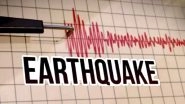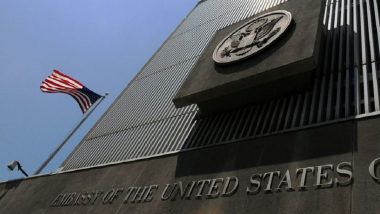Washington: The U.S. government’s decision to recognise Jerusalem as Israel’s capital by moving its embassy will see fruition on May 14. The decision formally breaks from decades of established American policy and international practice in a move that U.S. officials say will create greater regional stability.
U.S. President Donald Trump's daughter Ivanka and her husband, Jared Kushner, have arrived in Israel ahead of the opening of the new U.S. embassy in Jerusalem on Monday. The couple - both senior White House advisers - will attend the ceremony. U.S. President Trump himself will not be there.
The plan was brought forward to coincide with the Israel's 70th anniversary.
Speaking on the eve of the embassy opening, Secretary of State Mike Pompeo said he was hopeful of success in efforts to end the decades-old conflict while National Security Advisor John Bolton said it should make peace "easier."
Top U.S. officials insisted today that they could still push forward the troubled Israeli-Palestinian peace process despite outrage across the Arab world over the opening of the new American embassy in Jerusalem.
Critics say the decision to recognize Jerusalem as the Israeli capital could make a region already struggling with four ongoing conflicts all the more combustible. And they argue it marks the end of the U.S. role as an "honest broker" in Israeli-Palestinian negotiations.
The U.S. decision of 2017 was met with widespread international condemnation. The UN General Assembly passed a resolution rejecting the US recognition of Jerusalem as Israel's capital; 128 countries voted in favour of condemnation while only nine voted against.
Palestinians have re-soundly rejected the U.S. decision which it sees as re-inforcing Israel’s strategy to ensure their claim to Jerusalem as their future capital is jeopardized. Tens of thousands of Palestinians are expected to gather along the border between the Gaza Strip and Israel on Monday to protest the embassy opening.
The Palestinian Authority's leadership has effectively refused to speak to Trump's team since the move was announced, including his son-in-law Jared Kushner, who is supposed to be spearheading a new drive for peace. Husam Zomlot, head of the Palestinian Liberation Organization's delegation in Washington described the move as another step toward "a full-fledged apartheid."
"Tragically, the U.S. administration has chosen to side with Israel's exclusivist claims over a city that has for centuries been sacred to all faiths," he said in a statement. "Today's move of the U.S. embassy gives life to a religious conflict instead of a dignified peace."
Asked in an interview with Fox News Sunday about whether there was any life left in the peace process, Mike Pompeo responded by saying "the peace process is most decidedly not dead." "We're hard at work on it. We hope we can achieve a successful outcome there as well," said Pompeo whose first two weeks in office have been largely consumed with arranging a summit between Trump and North Korean leader Kim Jong Un.
As well as the protests by the Palestinians, demonstrations are expected on Monday in other Arab capitals where governments have argued that the status of Jerusalem should only form part of a final peace agreement. Pompeo said he was aware that there could be security concerns for U.S. embassies and citizens in the region in the coming days. "The United States government has taken a number of actions to ensure that not only our governmental interests but the American people in that region are secure as well, and we're comfortable we've taken action that reduces that risk," said the top U.S. diplomat.













 Quickly
Quickly


